Students First In All We Do
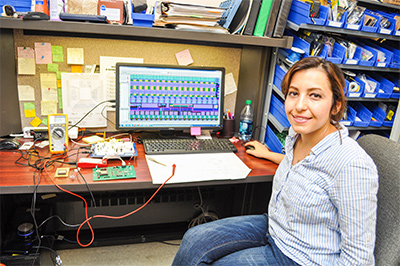
The path to transformation starts with one simple belief: students first in all we do. Students have changed in what they know, in how they learn and in what is important to them. Every improvement we make aims to strengthen opportunities and outcomes for students. It means offering students more autonomy to pursue topics that interest them, to complete tasks at their own pace, and to work on projects that develop a variety of skills.
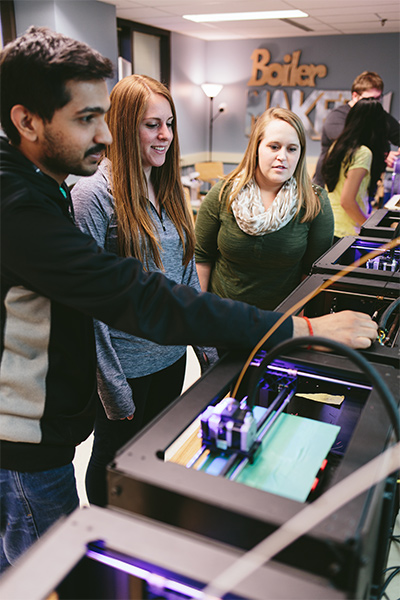
All aspects of the transformation can be traced these to these foundational elements:
Creating a student-centered learning environment based on research-proven teaching and learning techniques.
Students benefit from a mentoring relationship with professors as they achieve competencies and depth of knowledge in ways and timeframes that are tailored for the student.
Providing opportunities for students to demonstrate knowledge practically.
We want to each student to take part in a technology grand challenge experience immerse themselves in solving large-scale social and technical problems during their first year. The challenge incorporates many of the skills sought by industry.
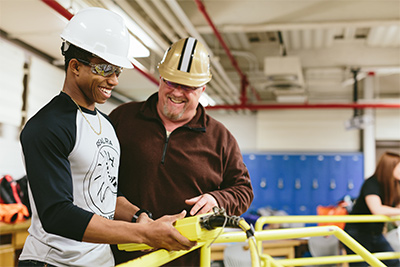
Integrating the humanities into the curricula.
Skills such as critical thinking, logic, creativity, innovation and problem solving are important for the designers and leaders of business and industry in the 21st century. These skills are enhanced and developed through a rich integration of humanities into all courses of study.
Highlighting the important role of research throughout the educational cycle.
We are creating a research and innovation network focused on Technology’s research strengths: demonstrating new technologies and developing systems. The network bridges the gap between research ideas and prototypes and the launch of a product. The labs play a key role in teaching innovation skills to students at all levels.
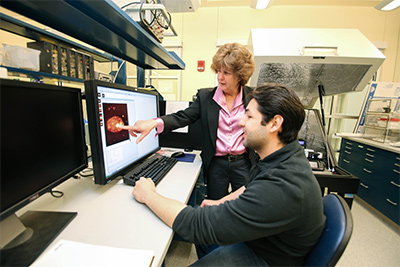
Expanding engagement with industry to help students and employers thrive.
We will take on a workforce educator role that expands our relationships with industry partners. Students benefit from additional opportunities to gain experience on industry projects and internships, industry benefits from the expertise of faculty and students, and faculty benefit from real-time feedback about industry’s changing needs. To complete the workforce circle, the college is partnering with a network of K-12 Polytechnic- affiliated schools, the first of which has been identified in Indianapolis.
Taking “learn by doing” to the next level
We believe in the power of experiences to help students understand concepts and solidify knowledge. The transformation expands the number of opportunities for students to gain relevant experience:
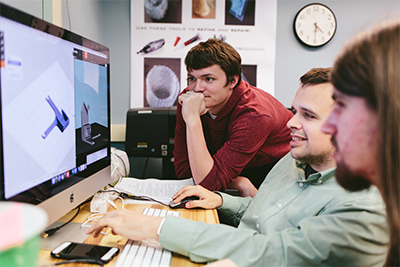
- Real-world, immersive capstone experiences provide projects for students to apply their academic experiences to help industry partners tackle challenges.
- A global perspective program widens a student’s scope of experience, preparing them for a diverse workforce and illustrating differences and similarities between cultures.
- Field experiences with an industry partner offer high-level experience on design, application or research projects during a semester or summer internship.
- Applied innovation certificate program weaves innovation and entrepreneurship principles throughout the curricula. Students can translate these experiences into certificates in Entrepreneurship and Innovation or Applied Innovation and Commercialization.
- Experiential labs and learning labs offer hands-on learning and problem-based team projects every semester in facilities designed especially for collaboration and creativity.
Five Overarching Goals
- Complete all objectives of transforming the Purdue Polytechnic Institute learning environment (learning methods, learning spaces, and other curricular initiatives – see the 10 Elements of Transformation) by the 2018-19 academic year. This would represent substantial completion of the major components of the Purdue Moves transformation of the Purdue Polytechnic Institute.
- Increase West Lafayette total enrollment to 4,564 (3,914 undergraduates, 500 M.S., 150 Ph.D.) in fall 2018 while reaching 25 percent female new beginners and 15 percent underrepresented minority new beginners in fall 2018.
- Improve the one-year retention rate to 95 percent and the four-year undergraduate graduation rate to 58 percent in the fall 2018 census.
- Achieve research expenditures to a level that is in the top 50 percent of the colleges at Purdue, and increase the number of faculty engaged in active scholarship by 10 percent as measured by those who publish three or more scholarly works during the year.
- During 2018, raise faculty hires to 30 percent female and 15 percent underrepresented minority, and sustain the current diversity of non-secretarial staff at 50 percent or more female and 15 percent underrepresented minority.
Core Values underlying the transformation process
- All decisions, priorities, and guiding actions – not to mention the day-to-day activities that routinely fill the college’s day – must be based on and consistent with the college’s core principles that are crucial to success:
- Placing students first in all we do – simply put, the academic and professional wellbeing of the students must be given the highest priority.
- Valuing diversity and inclusivity of all forms – recognizing the importance of diversity and inclusivity, and taking no action that runs counter to this principle, is paramount.
- Being socially conscious and responsible – acting in ways that reflect sensitivity toward and a sense of responsibility regarding injustice and challenges facing society.
- Aspiring for excellence in all we do – the transformation does not call for mediocrity in any area ... replacing good with great will require excellence in all areas.
- Being accountable for our actions – owning our words, actions, and their effects on others, and demonstrating the ability to hold oneself accountable rather than only holding others accountable.
